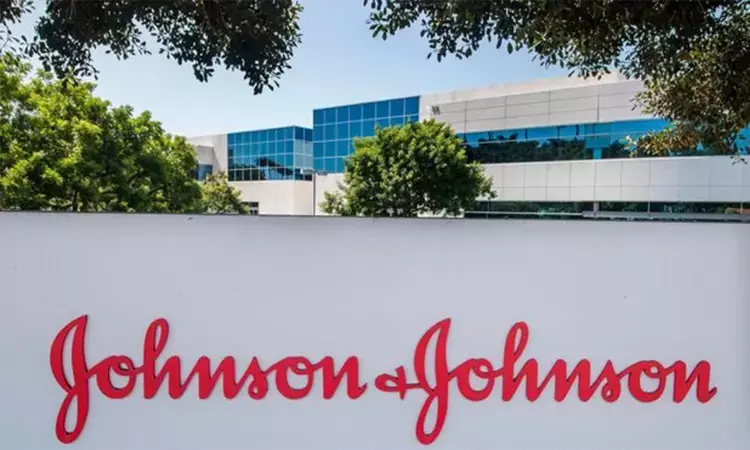- Home
- Medical news & Guidelines
- Anesthesiology
- Cardiology and CTVS
- Critical Care
- Dentistry
- Dermatology
- Diabetes and Endocrinology
- ENT
- Gastroenterology
- Medicine
- Nephrology
- Neurology
- Obstretics-Gynaecology
- Oncology
- Ophthalmology
- Orthopaedics
- Pediatrics-Neonatology
- Psychiatry
- Pulmonology
- Radiology
- Surgery
- Urology
- Laboratory Medicine
- Diet
- Nursing
- Paramedical
- Physiotherapy
- Health news
- Fact Check
- Bone Health Fact Check
- Brain Health Fact Check
- Cancer Related Fact Check
- Child Care Fact Check
- Dental and oral health fact check
- Diabetes and metabolic health fact check
- Diet and Nutrition Fact Check
- Eye and ENT Care Fact Check
- Fitness fact check
- Gut health fact check
- Heart health fact check
- Kidney health fact check
- Medical education fact check
- Men's health fact check
- Respiratory fact check
- Skin and hair care fact check
- Vaccine and Immunization fact check
- Women's health fact check
- AYUSH
- State News
- Andaman and Nicobar Islands
- Andhra Pradesh
- Arunachal Pradesh
- Assam
- Bihar
- Chandigarh
- Chattisgarh
- Dadra and Nagar Haveli
- Daman and Diu
- Delhi
- Goa
- Gujarat
- Haryana
- Himachal Pradesh
- Jammu & Kashmir
- Jharkhand
- Karnataka
- Kerala
- Ladakh
- Lakshadweep
- Madhya Pradesh
- Maharashtra
- Manipur
- Meghalaya
- Mizoram
- Nagaland
- Odisha
- Puducherry
- Punjab
- Rajasthan
- Sikkim
- Tamil Nadu
- Telangana
- Tripura
- Uttar Pradesh
- Uttrakhand
- West Bengal
- Medical Education
- Industry
USFDA warns against JnJ COVID vaccine for neurological disorder

GBS is a rare neurological condition in which the body's immune system attacks the protective coating on nerve fibers.
New Delhi: The U.S. Food and Drug Administration on Monday added a warning to the fact sheet for Johnson & Johnson's COVID-19 vaccine saying that data suggests there is an increased risk of a rare neurological disorder in the six weeks after inoculation.
In a letter to the company, the FDA classified the chances of getting Guillain-Barré syndrome (GBS) after vaccination as being "very low." Still, it said J&J vaccine recipients should seek medical attention if they have symptoms including weakness or tingling sensations, difficulty walking or difficulty with facial movements.
Around 12.8 million people have received J&J's one-dose vaccine in the United States. The FDA said 100 preliminary reports of GBS in the vaccine recipients include 95 serious cases that required hospitalization and one reported death.
J&J said in a statement that it was in discussion with regulators about the cases of GBS. It said the rate of reported cases of GBS in J&J vaccine recipients exceeds the background rate only by a small degree.
GBS is a rare neurological condition in which the body's immune system attacks the protective coating on nerve fibers. Most cases follow a bacterial or viral infection. Most people fully recover from GBS.
The condition has been linked in the past to vaccinations - most notably to a vaccination campaign during a swine flu outbreak in the United States in 1976, and decades later to the vaccine used during the 2009 H1N1 flu pandemic.
According to a statement from the U.S. Centers for Disease Control and Prevention (CDC), most of the cases were in men, many of whom were 50 or older. It did not find higher than expected cases of GBS in recipients of the mRNA-based vaccines from Pfizer Inc /BioNTech SE and Moderna Inc.
Last week, European regulators recommended a similar warning for AstraZeneca's COVID-19 shot, which is based on a similar technology as Johnson & Johnson's vaccine.
Read also: Covid-19: USFDA to add warning about rare heart inflammation to Pfizer, Moderna vaccines
The warning is another setback for the J&J shot, which was supposed to be an important tool for vaccinating in hard-to-reach areas and among those hesitant to be vaccinated because it requires only one shot and has less stringent storage requirements than the Pfizer or Moderna vaccines.
But use of the vaccine has already been linked to a very rare, potentially life threatening blood clotting condition and slowed by production problems at the main plant where it is being made.
U.S. regulators decided in April that the vaccine's benefits outweighed the risk from the blood clotting issue.
The warning was first reported by the Washington Post on Monday.
Ruchika Sharma joined Medical Dialogue as an Correspondent for the Business Section in 2019. She covers all the updates in the Pharmaceutical field, Policy, Insurance, Business Healthcare, Medical News, Health News, Pharma News, Healthcare and Investment. She has completed her B.Com from Delhi University and then pursued postgraduation in M.Com. She can be contacted at editorial@medicaldialogues.in Contact no. 011-43720751


